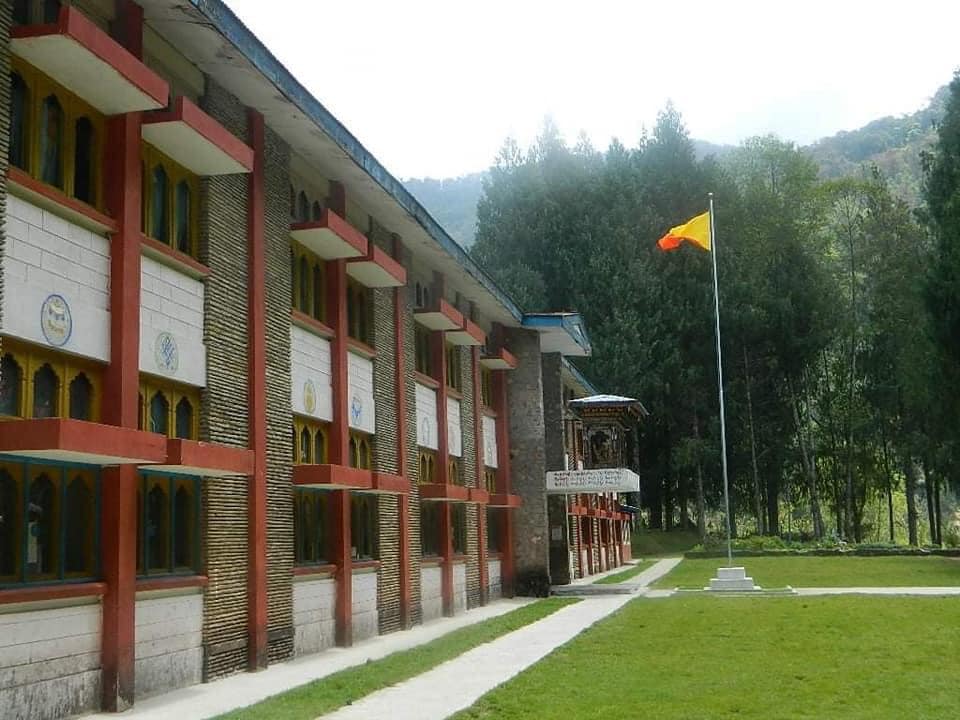The company aims to go on a full-scale production mode once it starts exporting their products to the markets in India
With the Koufuku International Limited (KIL), a dairy processing plant at Chenary in Trashigang, struggling to find local markets for its products, the company now plans to start exporting its products to India by the first week of this month.
Though the company has capacity to produce almost a ton of Gouda cheese every week and more than 30,000 cups of yogurt every day, there is a market for only about 70kg of Gouda cheese and 6,000 cups of yogurt.
The company’s Chief Executive Officer (CEO), Ugyen Dendup said getting market for the products has been the biggest challenge for the company.
He added that the company is also taking time to diversify its products, upgrade technologies and to train staffs as the plant was initially designed mainly for Gouda cheese.
According to the CEO, dairy products contain specific nutrients that cannot be substituted with other diets. But with all the nutritional values the dairy products have, the market acceptance in the country is low. Local consumption of dairy products has remained low.
However, the CEO said the rate of return on their products is comparatively higher and the plant will go on a full-scale production mode once it starts exporting their products to the Indian markets. Currently, the plant is running at about 50% of its full capacity.
“We are going to start exporting our products to Assam in India and then depending on the performance we will extend our market in other places as well,” said Ugyen Dendup.
The company plans to products like yoghurts, curds and Gouda cheese to the Indian markets.
Ugyen Dendup said the company will export two types of curds, sweet curds and normal curds, as there are demands for curds in India.
Meanwhile, it’s learnt that the company has also proposed the education ministry to introduce yoghurt in school feeding programs given its nutritional value.
The CEO said it would be a wise move if schools can provide dairy products such as yoghurt in their diets.
He added that after consulting with the dzongkhag education officers in Trashigang and Mongar, the company managed to supply yogurts to some of the boarding and central schools in the two dzongkhags.
“Given the limited budget the school feeding program has, it is not enough for students to afford yoghurt in their daily meals,” he added.
The company also plans to collect milk from almost all the dairy groups in the Dzongkhag once it begins exporting its products to India.
Of more than 25 functional dairy groups in the Dzongkhag, only about 12 dairy groups supply milk to KIL, comprising about 300 households. The company has a requirement capacity of 4,000 liters of milk a day. However, the factory collects only about 2,000 liters of milk daily.
Currently, the plant performs one shift a day with a capacity of 4,000 liters of milk per shift. The plant, according to the CEO, will be able to perform three shifts a day if there is a ready market.
Further, the company is also planning to bring in milk from nearby dzongkhags of Mongar and Trashiyangtse.
“Yadi, Ngatsang and Chaskhar gewogs in Mongar are the main milk production areas and these gewogs have agreed to supply milk,” said the CEO, adding that when they can create markets, it directly benefits the farmers and there is empowerment of rural economy.
“If we can assure ready market, it encourages farmers to work more and produce more, which ultimately adds to the local economy,” he added.
Meanwhile, the dairy processing plant was first started in 2015 as a joint venture between Druk Holding and Investments and Japanese counterpart SNBL. KIL is an ISO 22000:2005 and BAFRA certified dairy processing company.
Jigme Wangchen from Tashigang














